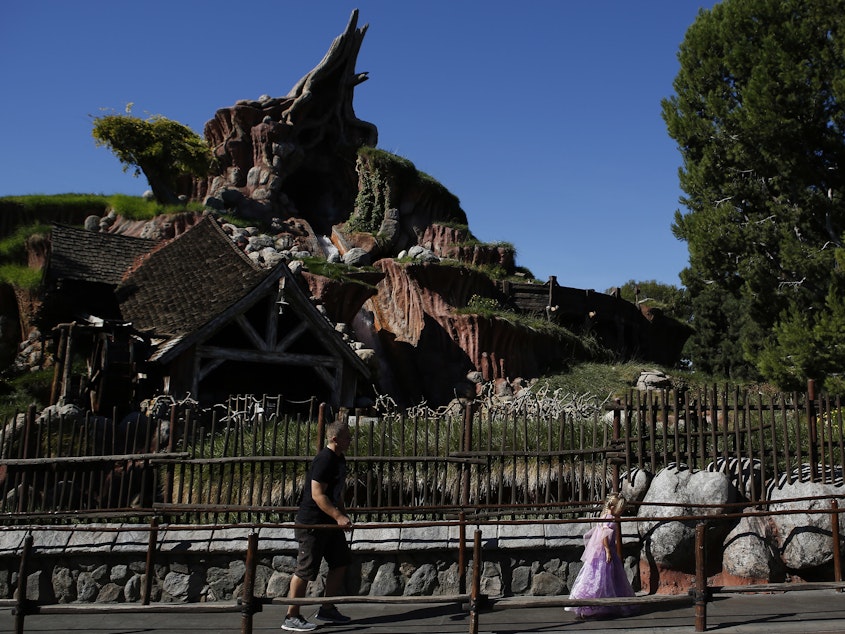Disney Announces Redesign Of Splash Mountain After Some Call Ride Themes Racist

Splash Mountain, a Disney Theme Park staple ride, is undergoing a design change in response to complaints about its association with the film Song of the South. Disney announced in a statement on Thursday that the ride would be "re-themed" to focus on the 2009 animated film The Princess and the Frog.
A Change.org petition says that the log flume ride — versions of which are in Disney parks in Florida, California and Japan — is "steeped in extremely problematic and stereotypical racist tropes," from the 1946 film. That petition, which called for the redesign announced Thursday, has received more than 20,000 signatures.
While the statement made clear that Splash Mountain will be redesigned in Disneyland and Disney World, it did not mention the version of the ride that exists in Tokyo.
Former Disney CEO Bob Iger has acknowledged that Song of the South, whose characters are depicted in the animatronic portion of the ride, is "not appropriate in today's world." Iger said in March that the film, which combines live-action and animation elements and is set on a Georgia plantation after the Civil War, would not be included on the company's Disney+ platform.
In 1946, when the film was released by Disney, the NAACP strongly disapproved of the film, saying that "in an effort neither to offend audiences in the North or South, the production helps to perpetuate a dangerously glorified picture of slavery....[the film] unfortunately gives the impression of an idyllic master-slave relationship which is a distortion of the facts."
Disney parks previously changed the famous ride Pirates of the Caribbean, removing its misogynist depiction of a "bridal auction" in 2017.
In Disney's statement, spokesman Michael Ramirez said that the re-theming of Splash Mountain had been in the works since last year, but nodded to its relevance to discussions of race in America.
"The retheming of Splash Mountain is of particular importance today," Ramirez said in Disney's statement. "The new concept is inclusive – one that all of our guests can connect with and be inspired by, and it speaks to the diversity of the millions of people who visit our parks each year. " [Copyright 2020 NPR]


